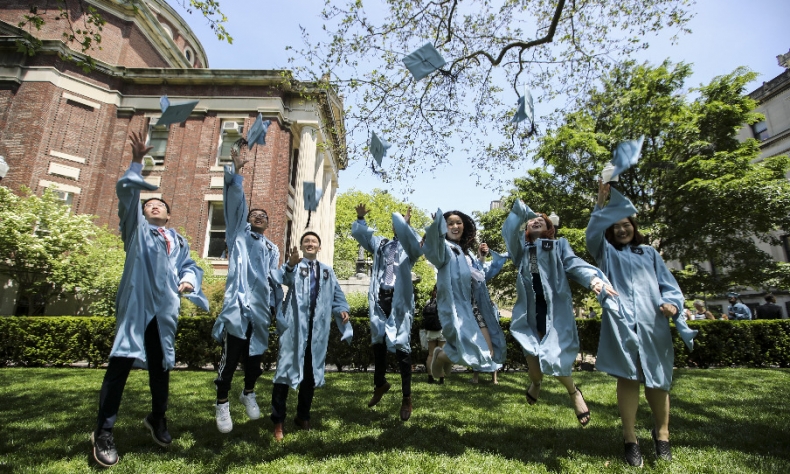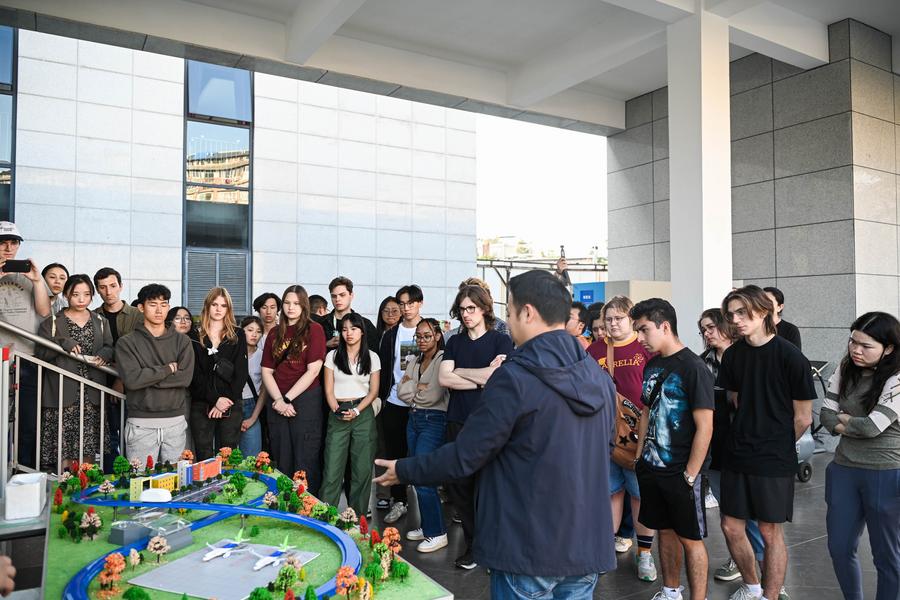Erasing the Error in Transnational Education

Erasing the error in transnational education has the potential to significantly enhance people-to-people interactions, particularly among younger generations, and thus play a pivotal role in advancing the development of China-U.S. relations.
On the sidelines of the 60th Munich Security Conference, held from February 16 to 18 in the German city of Munich, Chinese Foreign Minister Wang Yi met with U.S. Secretary of State Antony Blinken. Wang urged the U.S. side to stop the unwarranted harassment and interrogation of Chinese citizens and do more things conducive to enhancing mutual understanding between the two peoples. “An act of kindness, no matter how trivial, is worth doing, while an act of evil, no matter how small, must be shunned,” he quoted an old Chinese saying.
Wang’s remarks stemmed from recent incidents involving Chinese students facing uncalled-for questioning upon their arrival at U.S. airports. At Washington Dulles International Airport alone, at least eight Chinese students with legal and valid travel permits have been pulled aside, grilled and deported by the U.S. side for unfounded reasons since late November 2023.
These were not isolated incidents, but are part of a broader trend initiated by Proclamation 10043, an executive order signed by former U.S. President Donald Trump in 2019. Citing “national security” concerns, the order introduced a selective ban on visas for certain Chinese students and scholars. Implemented in May 2020, the restrictions are set to remain in place indefinitely unless explicitly lifted by a sitting U.S. president.
As a result, the U.S. has since revoked the visas of 3,000 students alleged to “have ties to the Chinese military,” halted visa issuance to Chinese students and researchers with “military affiliations,” and there have been proposals by U.S. legislators to cease granting visas to Chinese students specializing in science and technology fields.
The succeeding Joe Biden administration has not reversed the existing restrictions; rather, it broadened the scope to encompass additional prestigious Chinese academic institutions. This expansion has had a tangible impact on the presence of Chinese students in the U.S. In November 2023, the Institute of International Education, with support from the U.S. Department of State’s Bureau of Educational and Cultural Affairs, released the 2023 Open Doors Report on International Educational Exchange, an annual statistical survey of international educational exchange activity into and out of the United States since 1948. The report revealed that the number of Chinese students in the U.S. for the 2022-23 academic year had declined 22 percent to 289,526 from a peak of 372,532 in the 2019-20 academic year.

In contrast to the U.S. approach, China has been open to welcoming American students for educational purposes and has actively promoted cultural and people-to-people exchanges between the two nations. During his trip to San Francisco to attend the APEC Economic Leaders’ Meeting in November 2023, Chinese President Xi Jinping pledged to invite 50,000 young Americans to China for exchange and study programs over the next five years. The Chinese Government has enacted several policies to attract international students, including Americans, to study within its borders.
The U.S. is now at a juncture where it can cultivate its already vibrant cultural and scholarly connections with China.
True to the ideals of the San Francisco summit between the Chinese and U.S. presidents, extending a warmer welcome to Chinese students, fits well with this goal. This includes an immediate end to the repression and restriction of Chinese students under the guise of “national security.”
Ensuring the safety and legal rights of Chinese students and scholars within U.S. borders helps to remove barriers to cultural exchange and the free movement of people between the two nations.
It is in the best interest of academic and cultural exchange for the U.S. to rescind Proclamation 10043. U.S. customs and educational institutions must stop unwarranted interrogations and expulsions of Chinese students based on this residency proclamation, which severely hinders their education and exchange opportunities in the U.S.
Parallel to ending the unfair treatment of Chinese students, the U.S. should proactively facilitate American students studying in China. This includes swiftly reinstating three flagship initiatives for U.S. students to pursue further education in China, including the Fulbright Program, the 100,000 Strong in the Americas and the Sino-U.S. Cultural Exchange Scholarship.
As both Wang and Blinken acknowledged, while these efforts may seem small in the vast and complex context of China-U.S. relations, they have the potential to significantly enhance people-to-people interactions, particularly among younger generations, and thus play a pivotal role in advancing the development of China-U.S. relations.
The author is a research fellow at the Center for China and Globalization.
 Facebook
Facebook
 Twitter
Twitter
 Linkedin
Linkedin
 Google +
Google +










